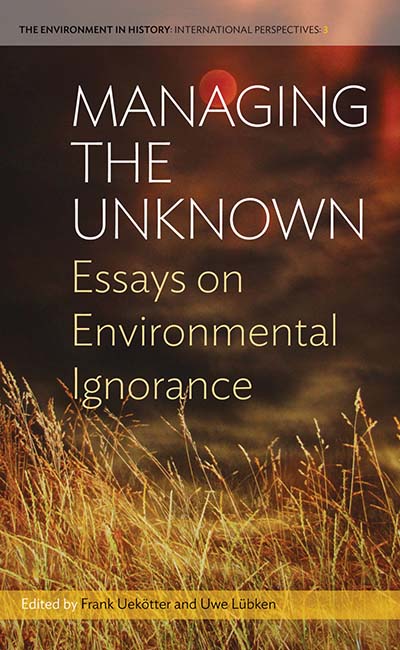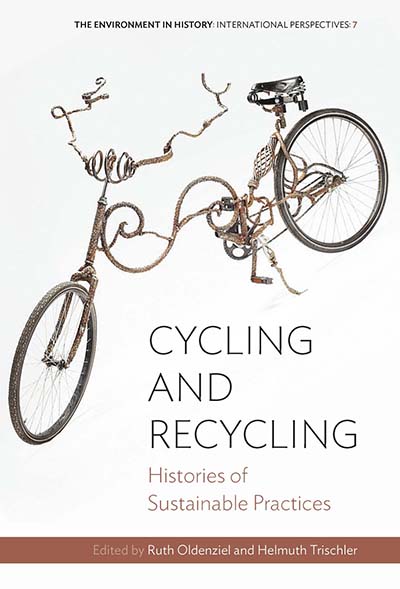
Series
Volume 3
Environment in History: International Perspectives
Email Newsletters
Sign up for our email newsletters to get customized updates on new Berghahn publications.
Managing the Unknown
Essays on Environmental Ignorance
Edited by Frank Uekötter and Uwe Lübken
208 pages, 1 illus., bibliog., index
ISBN 978-1-78238-252-2 $135.00/£104.00 / Hb / Published (March 2014)
ISBN 978-1-78533-207-4 $34.95/£27.95 / Pb / Published (January 2016)
eISBN 978-1-78238-253-9 eBook
Reviews
“This is an interesting and well written set of essays that provides fresh and illuminating insights on many important topics, which makes it indispensible to practitioners and students of environmental history across the globe. Indeed, because it comments on so many topical issues, it should be of interest to anyone concerned about current environmental problems, their origins and possible solutions (especially making manufacturing, forestry and farming sustainable, controlling waste and pollution and finding renewable energy sources). The chapters are of a uniformly high standard and the introduction expertly places them in context.” · Tom Brooking, University of Otago
Description
Information is crucial when it comes to the management of resources. But what if knowledge is incomplete, or biased, or otherwise deficient? How did people define patterns of proper use in the absence of cognitive certainty? Discussing this challenge for a diverse set of resources from fish to rubber, these essays show that deficient knowledge is a far more pervasive challenge in resource history than conventional readings suggest. Furthermore, environmental ignorance does not inevitably shrink with the march of scientific progress: these essays suggest more of a dialectical relationship between knowledge and ignorance that has different shapes and trajectories. With its combination of empirical case studies and theoretical reflection, the essays make a significant contribution to the interdisciplinary debate on the production and resilience of ignorance. At the same time, this volume combines insights from different continents as well as the seas in between and thus sketches outlines of an emerging global resource history.
Frank Uekötter is Reader at the School of History and Cultures of the University of Birmingham. His publications include The Age of Smoke. Environmental Policy in Germany and the United States, 1880-1970 (2009), The Green and the Brown. A History of Conservation in Nazi Germany (2006) and, as editor, The Turning Points of Environmental History (2010). He is currently working on a global resource history.
Uwe Lübken joined the Rachel Carson Center for Environment and Society in 2009 and currently serves as director of the project “Disaster Migration in a Historical Perspective”. His habilitation thesis on flooding of the Ohio River was published in 2014. His most recent publications include, as an editor, two special issues of the journal Global Environment on Environmental Change and Migration in History (9/2012) and on Small Islands and Natural Hazards ( 8 (1/2015, New Series ), and, together with Greg Bankoff and Jordan Sand, Flammable Cities: Urban Conflagration and the Making of the Modern World (2012).


